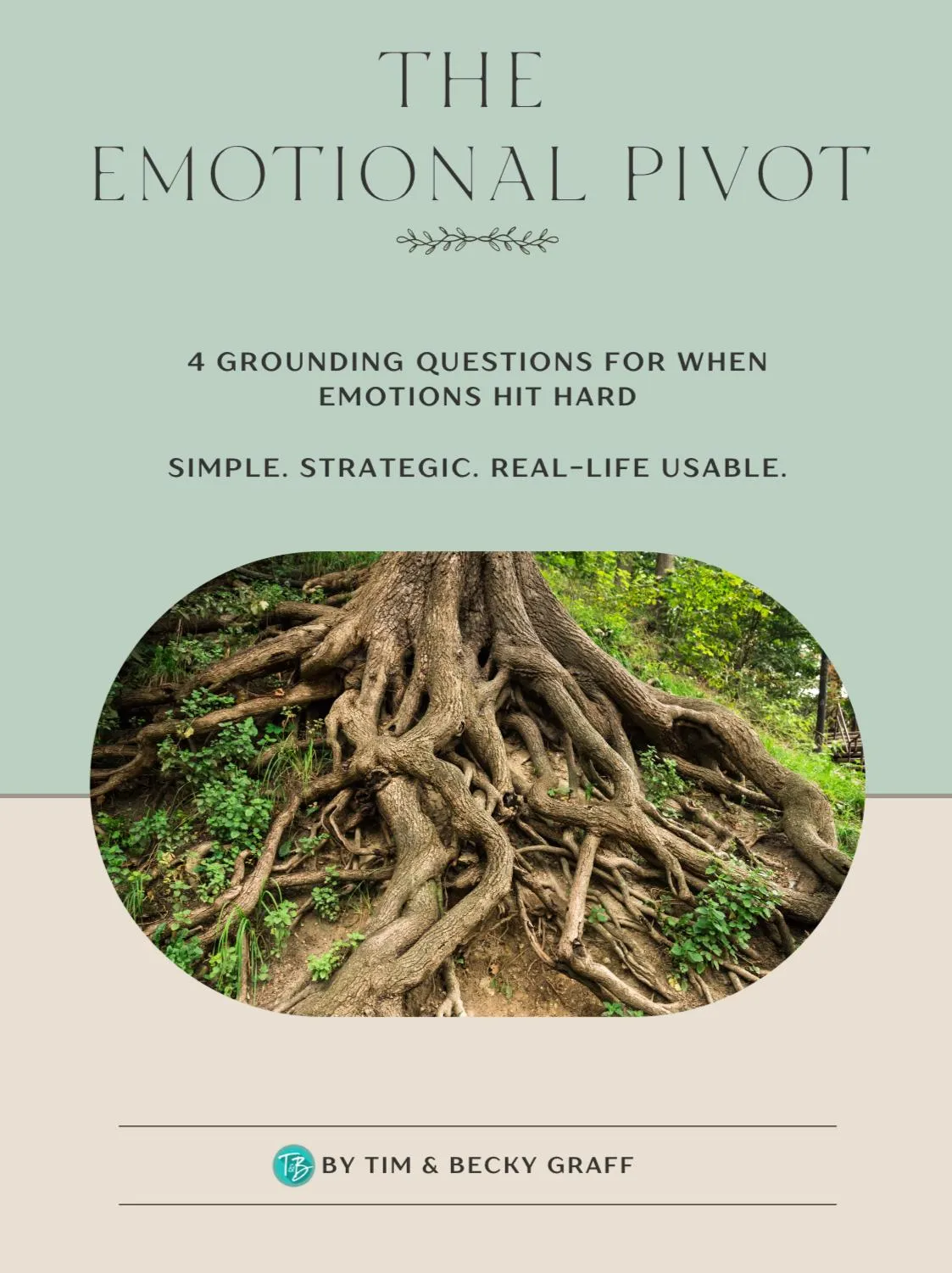We Teach Functional Emotional Resilience
We Teach Functional Emotional Resilience
You don't need to feel better to function better.
Certified Mentors in behavior-based tools for maintaining control, capacity, and agency under emotional load.
We were certified in this methodology in 2019 for business application, teaching high-performers to operate under pressure.
In May 2020, we lost both our daughters in a tragic accident. The tools we'd been teaching for business proved equally effective for catastrophic grief.
That's when we discovered: Functional Emotional Resilience works under ANY emotional load.
Business pressure. Caregiving exhaustion. Anticipatory grief. Acute loss.
FER isn't therapy. It isn't positive thinking. It's a systematic approach to operating effectively when your emotions are screaming.
We teach behavior-first tools that work WITH your emotions to function under pressure. You need both to be healthy and effective long term.
Not stoicism. Not exposure therapy. Not toxic positivity. Not CBT/DBT.
Our approach focuses on the balance between action and feelings. Most people aren't taught how to actually work WITH emotions. We show you HOW.
What You'll Learn:
Behavior-first tools proven under extreme pressure
Regain emotional control in minutes, not months
Practical frameworks that work. No therapy required.
Get The Emotional Pivot Below:
Lower your emotional load and regain access to your options in minutes.
If You need to function while emotionally loaded, You’re In The Right Place.
On the outside, everything seems to be “fine."
You do what's needed. You’re capable, successful, and “strong.”
But inside? You’re running on fumes.
The emotional load is maxing you out. Grief. Anxiety. Fear. Caregiving exhaustion. Business pressure. Something you can’t quite name.
Whether it came on slowly or hit like a tidal wave, you know this: you need to keep functioning, but the intensity is making that harder every day.
You’re tired of pretending you’re fine.
You want actual tools that work when emotions are screaming.
We get it, more than you know.
We were certified in this methodology in 2019 to teach high-performers functional emotional skills for business.
We were using these tools with executives and entrepreneurs when catastrophic loss hit in May 2020.
We lost both of our daughters in a flash flood.
Everything shattered.
Our plans, identity, sense of purpose. The pain was indescribable.
We felt overwhelmed, disoriented, like life was spinning out of control.
And yet, we still had responsibilites.
People depended on us.
Life kept moving.
We had to figure out an effective and sustainable way forward.
And we did.
Not because we discovered some new coping mechanism in the aftermath, But because we'd already been trained in tools that actually work.
These tools work under ANY emotional load. Business stress. Caregiving exhaustion. Anticipatory grief. Acute loss. Even after severe and life-altering events.
That's when we discovered: these tools work under ANY emotional load. Business stress. Caregiving exhaustion. Anticipatory grief. Acute loss. Even after severe and life-altering events.
This methodology was developed and refined over more than four decades through real-world application in life-skills and behavioral training programs, and demonstrates an approximately 80% success rate based on participants’ ability to apply the skills, build functional capacity, and operate more effectively under emotional load.
We teach these tools to individuals under emotional load, including licensed mental health professionals who found their traditional training didn't prepare them for acute personal crises.
Because of this training, we didn't avoid the pain or attempt to numb it.
We worked with what "is."
This is one of the most challenging pieces: acknowledge and accept the truth, and then ask:
"What do I want to do about it?"
That question is powerful.
It's part of a system of tools that worked for us and continues to work, for countless others.
You don’t need to suffer endlessly.
When you're under intense emotional load, your nervous system doesn't distinguish between sources. Business crisis. Caregiving exhaustion. Anticipatory grief. Acute loss. The body's response is the same: overwhelm, shutdown, loss of capacity.
And when you don't have functional emotional skills to work with your nervous system, you're left feeling helpless, confused, and stuck.
Most people are told:
“Just give it time.”
“Your feelings are valid.”
“You’re doing the best you can.”
All true. But none of that tells you how to function better now, while time passes.
That’s where we come in.
We teach functional emotional resilience for real life.
Not the theoretical kind you read about in books, but the kind that works when your nervous system is maxed out and you still need to function.
Our focus is speed of recovery and building capacity.
Not pushing through. Not toxic positivity. Practical, evidence-based skills that work under pressure.
It’s about building emotional resilience through behavior-first tools that create measurable capacity increase.
What we teach is a repeatable system we use daily through the most intense emotional moments of our lives.
This behavior-first method helps people develop lasting emotional resilience without months of traditional therapy.
This is strategic, personalized, high-impact inner work.
Designed for people who need skills that work in the moment, not just in the therapist's office.
We created The Emotional Pivot as your first step.
It's a free, simple tool that, when used, will lower your emotional load and help you regain access to your options.
You’ll see that building functional emotional resilience is possible.
More importantly, you'll discover what it feels like to have tools that actually work when you need them most.
We’ve lived it.
We teach it.
And we're ready to show you what actually works.
-Tim & Becky
When emotions hit hard, these simple questions help you reset fast.
Bringing clarity, control, and calm back online.

Download your complementary real-life resource and take the first step toward clarity, calm, and a real emotional shift, starting now.
Latest Blog Posts
© 2026 MyDomain.com, All Rights Reserved
Helpline FooterPrivacy Policy | Terms & Conditions
If you are experiencing self harm thoughts please call 911 or go to your local emergency room.
Other sources of support are:




